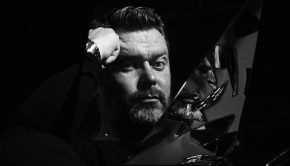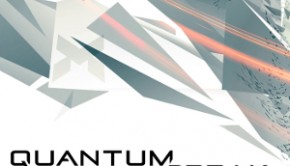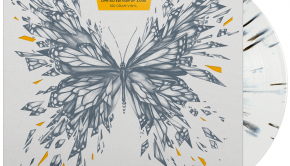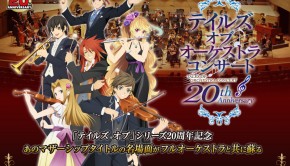Petri Alanko Interview: Scoring Alan Wake
Petri Alanko is a Finnish composer who recently came to acclaim for his four hour score to Microsoft’s Alan Wake. Alanko meticulously complemented the scenes of this psychological action thriller and enhanced its melancholic, romantic feel by recording with the Staatskapelle Halle. While his first game project to date, Alanko’s extensive classical education and numerous experiences as a composer and producer in the Finnish music industry ensured he was prepared for this big break.
On July 20, the Alan Wake Original Score will be released as a physical and digital album by Sumthing Else Music Works. In light of this landmark, Alanko decided to recollect the Alan Wake in this interview and an earlier insight article. In this interview, Alanko elaborates greatly on his musical background, scoring experiences, and perspectives for the future, while revealing what to expect from the upcoming soundtrack release.
Interview Credits
Interview Subject: Petri Alanko
Interviewer: Chris Greening
Editor: Chris Greening
Coordination: Greg O’Connor-Read
Interview Content
Chris: Petri Alanko, we really appreciate your time today. First of all, could you introduce yourself to readers and discuss your musical background, education, and influences? What uniquely defines you as a musician?
Petri Alanko: I have a classical background. Thankfully I had a lot of inspiring teachers, though every one of them probably agrees I was a bit on the lazy side when it came to practising my piano chops. Being in a conservatoire in Finland means that one has to take lessons in musical theory and ear training as well as study a bit of musicology. Also, I had to choose a secondary instrument as well, which turned out to be a great choice: church organ.
My first organ lecturer, Mr. Aimo Känkänen introduced me to his successor, Mr. Kalevi Kiviniemi (googling his name will reveal everything one has to know about this great person), who planted quite a few seeds with his magnificent personality and his choice of teaching material. However, being a lazy teen, I relied on my sheet reading, trying to see a couple of bars at a time and not spending all of my spare time practising. I managed to develop a good prima vista reading, which fortunately has helped me enormously in my “touring pop musician” phase from 1991 to 1997.
One of the first pieces to analyze and learn was a few organ preludes by Gabriel Pierné, and the romantic French organ registrations really blew me into a different reality back then. In addition to that, I was studying piano pieces by Prokofiev, Tchaikovsky, Rachmaninov, Mozart, Beethoven, Bach… very much the usual choices, one would say. However, Baroque was never my thing. I did like the mathematic side of it, but it was the richer, crazier, more decadent tones that allured me back then. The more notes I could slam down, the more I loved it. I was quite a mellow and easygoing guy as a teenager, but in front of a piano I was a furious maniac. I let all my angst out in a right way, I’d say.
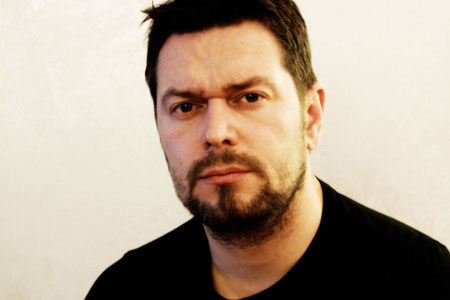
At the same time I was more and more interested in electronic music, dating back 1978 when I was eight, when I happened to hear Kraftwerk on the radio. “Robots” was one of my childhood shockwave songs, and my life literally changed after that. Along with them came the usual things, Jarre, Tangerine Dream, Vangelis… Michael Stearns, Dead Can Dance. Then much later I discovered Nine Inch Nails and other industrial groups.
As I had had a synthesizer (an old Roland SH-5 which was bought from a Polish restaurant schlager group as “broken” — my father just cleaned it up and changed a fuse and it was like new again) a long time since early 80’s, introducing myself to the technology of electronic music was easy and I learned things gradually, one by one. After a while, cutting enough grass, delivering the advertisement papers around the neighbourhood, washing the dishes, etc., I finally got enough pocket money to buy a Juno-6, which was a real workhorse for a young boy. Soon after that, my grandmother bought me a Fostex X-15 and a Soundmaster Stix drum machine. Wow, just wow. Incredible. I was making music.
Because there wasn’t much literature about electronic music, the technology and the methods used, at least not written in Finnish back then, I had to learn English word by word, using a dictionary. It wasn’t easy, but it surely helped in the long run. I was very tech-aware at around 13 years old, when MIDI was introduced. Somehow it all seemed so easy. Just plug in a DIN cord and that’s it.
Later I became interested in programming and I even spent a short time in the University of Jyväskylä, Finland, studying theoretical physics, programming (C, Pascal), and musicology — what a combination. All this together have probably lead me to this point: classical influences from strong teachers, romantic/expressionistic music, French organ music, synth groups, technology — and being a Finn. There’s something very, very unique in our country, a sort of an easy-going vibe all around us, an ability to concentrate on the bare essentials, to see through the surface. We’re sort of fire gazers, so to speak.
Chris: Before working on Alan Wake, you had an extensive career producing music and designing sound for bands, record labels, and mobile manufacturers, among others. Could you elaborate on some of the projects you were involved in? Aside Alan Wake, what do you consider your proudest achievements to date?
Petri Alanko: Well, I’d say I’m proudest when I see a customer wipe tears from their eyes! If that happens, I know I have touched something very valuable in their hearts. I’m really proud of the fact I’ve managed to offer my wife and my child their everyday food and a home to live in. But, to be honest, before Alan Wake I hadn’t had an opportunity to really do what I love. I stepped away from the classical camp in early 1990, to earn some money in the pop world, but I really wanted to go back, and to do music for films and games — but I wasn’t able to do so, due to the lack of contacts. The inside group of Finland is very, very small, and they don’t let new people in easily. That’s why most of the real talents quite rarely get their opportunity here.
Anyway, there were a lot of pop/rock projects, in which I had to sometimes deal with musicians whose sense of timing was slightly more than relaxed, and I time-corrected an incredible amount of drum takes before there was any Beat Detective or ProTools. We just tried to comp the drums resembling their final stage, then sample the whole thing section by section, chop the worst bits into pieces and reassemble. Repeat this if multiple channels (read: more than stereo) were needed. That was relatively easy compared to vocal correcting: before Auto-Tune, I had to tune vocals by sampling a vocal line into an Akai sampler, then cutting it into pieces, pitchbending the syllables one by one and reassembling the vocal take from those tiny snippets; sometimes I had to create a doubling take as well, from the same garbage. Throw in some random midi delays from then interfaces, and you’re facing a inter-syllable crossfade hell.

Also, if I remember correctly, I was involved with 492 radio commercials — all done during one year, sometimes with only one hour deadlines — so I’ve really come to appreciate longer time spans and longer projects. So, I must say the raw material wasn’t always top-notch, but I did my very best with the tools I had back then. Finally, the hard work paid off and I get to enjoy some modest success, although I always wanted to stay away from the limelights.
Also, some of the trance scene stuff was very interesting to do. I’m particularily proud of Orkidea’sMetaverse album and its high review scores; I really let myself loose on his album, adding some ambient stuff, drum programming, mixing… it was a nice collaboration, which I’d like to see continue one day. I find myself feeling very confident and natural in team projects, and his album was a prime example of a good team collaboration. I really like to build onto something; it’s almost as if someone’s built a sandbox and the sand castle’s basement is already done — just go and do your stuff! I like it that way, but I really have to dig the original piece. One cannot build onto bad foundations. There has to be something memorable, a chord progression, hook, melody. In trance scene it’s sometimes the breakdown that counts.
Songwriting-wise, one of my proud moments is from a songwriting camp a while ago. In two days, I had to hook up with total strangers, make two songs, arrangements and all. I managed to create melody, composition and lyrics for three; one of them is already “on hold” right now for a local X-Factor finalist. Team work at its best, definitely. A prime example of “It’s not the infinite assets, it’s the restrictions that feed creativity”, I think.
Chris: While you have worked extensively for companies in Finland in the past, Alan Wake was your first major game project to date. Could you reveal how you became assigned to this project and what it was like to work on such a high-profile game?
Petri Alanko: I had a part-time musician friend — well, I still have — at a company called Futuremark, whose roots can be traced to Remedy in some way (which are beyond my knowledge). We’d done some tracks together a few years back, so he knew me quite well and was aware of my classical background, as well as my other preferences. In some informal meeting, one of the Remedy representives happened to ask my friend, whether he knew anyone capable of creating orchestral music and memorable melodies, and so he gave them my name and number. A short while afterwards I got a phone call from Remedy and the guys asked me to visit them.
I didn’t know at all what to expect then, although I knew projects involving computer programming and landscape tool development could have a longer time span compared to “normal” cases. From the beginning, it was very clear the guys I was dealing with were true professionals. Very sharp, witty, funny, always on the spot, very able to discuss their thoughts. The style they were after was very well defined in the first meeting — and it was like that to the deadline. Although the plot changed a little during that five years I was involved with Alan Wake, the stylistic issues never did. I was assigned to a sandbox with clear edges and felt happy with it.
Chris: Tilman Sillescu recently stated that you used “small string orchestra to create a very intimate atmosphere, which is very suitable for the game” in order to build a sophisticated, sad, and thoughtful sound. Could you elaborate on how you were able to achieve this?
Petri Alanko: The smaller orchestra was used for many reasons, but one of them originally was my desire to hear individual instruments within a section — with full sections the sound begins to clutter and to unify, even though one can deal with vibrato and dynamics, of course, but in the smaller sections the sound of “human hands” became more prominent. With larger sections the difference between sample libraries and real thing isn’t that clear. Well, of course phrasing-wise and dynamically there’s a huge difference, but the sound itself doesn’t differ that much.
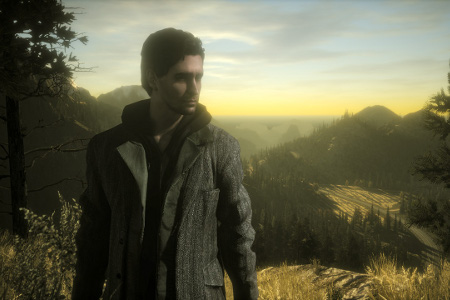
Besides, the divisi sections in sample libraries weren’t that advanced. It seems they became fashionable during 2009. I acquired the Los Angeles Scoring Strings library by Audiobro right before the final mixing and found that very, very pleasing. I’ve been using that library for strings ever since. The final result of AW is a combination of real strings and quite a huge number of samples as well as synthesis.
The sadness probably comes from orchestration, chord progression and phrasing, most likely the latter. The choice of instrumentation wasn’t always clear from the beginning as I like to go with the flow and I’m always adding details until the very last seconds, but I asked the orchestra conductor to trust me. “Just one note?” “Yep. Even though it sounds stupid.” Thankfully, both Dynamedion and their conductor did trust me.
Every melody has two sides: there’s the immediate sense, the “hooks”, then the layers that spent longer in the making — not layers as such, more like characteristic layers, or phrases and motives. Some of the motives were based on action, some of them on character’s own motivation, goal, means, tools… I was always making notes, both mental and on paper.
Perhaps some of the fragility comes from the fact I’d once interpreted Alan Wake as a sad love story — which it actually is, a classic tear-jerker set in the world of paranormal incidents. If you diminish the scale — bring it into “our world”, so to speak — you’ll have your hands on a romantic plot. Dark force becomes the odd lady of neighbourhood, takens are the small town telltale ladies, for instance. I’ve used to scaling as I like to use it as a mental tool to find out details often hidden behind the surroundings, environment, clutter, whatever is the right word. It’s the same with the actors: sometimes exaggerating an action brings out something fundamental.
I have to reveal an old trick which always works. If I have to do ominous or intimidating stuff, I always imagine Hannibal Lecter standing behind the 2 inch plexiglass. Or him stepping into the light in the latter scenes of The Silence of the Lambs. Sir Anthony Hopkins has reached something profoundly evil there, always turning me into one huge piece of cold turkey.
The “thoughtful” bit is probably due to the fact I like to be by myself. I feel confident being in a role of the observer. I like to sit in a cafe, watching people pass by, talking to their cell phones.
Chris: In order to achieve this sound, you must have been inspired by a range of texts, visuals, and people. Could you discuss what were your major inspirations when deciding what direction to take your music for the game? Were the cinematic sequences especially inspiring when you were underscoring?
Petri Alanko: Yes they were, and thanks to the cinematic team and their leader Stobe Harju, they did excellent work dramatically. The pacing and flow was there from the beginning, even though the first clips handed over to me were merely stills and wireframe — if I was lucky. Sometimes I got mo-cap raw material, sometimes pre-renders. It all helped, as I’ve got a vivid imagination, so it was easy to “put clothes” onto the unfinished scenes.
I didn’t know the ending of the game until the third quarter of 2009, so I was literally flying blind, trying to trust my instincts. There were many clues around, though, so I managed to develop the style of the scoring little by little towards the right direction — by happy accidents. Nevertheless, quite a lot of the cues were cut quite heavily, because they accompanied the picture and not vice versa. A lot of material ended up on the imaginary cutting room floor.

One of the key moments was the day I saw the final cinematic: people amidst confetti, moonshine and partying, old chaps shaking hands, sunshine… after seeing Alice resurface from the depths of the lake it was literally heartbreaking. Stobe Harju (the cinematic team leader) had chosen one of the most touching themes to accompany the final scene and I couldn’t help but cry. That really hit me. It was as if I’d done music to picture, but it was Stobe’s choice. The music had been done earlier, as a “fill-in” cue, in case they needed such thing, but it was shelved for a long time, because it had too much “positive fragility” in it. But it just clicked in the final scene.
There were multiple versions of manuscript I kept on referring to. Every single one of them was written in lively, fluent English, so the essential task of “getting inside” was relatively easy using the tools I’ve gotten. Also, after a lengthy slideshow containing at least hundreds of their pictures from Remedy’s field trip to NW USA, I felt very confident about the overall sound — those pictures made me think about the overall spaciousness, the space in which all musical instruments reside. Wet forest sounds and smells very distinct, so I wanted to bring in some of that, somehow. We’ve got a plenty of forests here, so I know something about it.
If all of my jobs had been decorated with a similar background work, I’d been a happier fellow a very long time. I’ve spent a healthy amount of time in the offices of different advertising agencies, but even if I put together all the info gotten from them, the total amount of background info seems microscopically minuscule compared to the Remedy’s database handed over to me. It was like they’d done a military intel trip to find out the base vegetation in a molecular level. After exposed to such enormous amount of info, my job was amongst the easiest. I think I put it correctly in the album liner notes: “This was the easiest tough job ever.”
The same amount of details concerned also the characters, thanks to Sam Lake and Saku Lehtinen. I know now what to require with my next assignments with different companies.
Chris: During the development of Alan Wake, you worked closely with Sillescu’s Dynamedion to orchestrate and record the music. Could you elaborate on what it was like to work with this team? What do you think the chamber orchestra brought to your compositions?
Petri Alanko: The orchestra brought the music alive, literally. Besides, their orchestrator, David Christiansen, did magnificent “old skool” job by notating by ear, not by looking at the prescores (which I didn’t have time to provide). Sometimes I had wanted to use phrasing not available in any sample library, so the original demos were often suffering from multiple overlapping sections — you just can’t do some things with samples, at least not very easily. Sound-wise, I got those “hand movements” and “fingers on the strings” I wanted.
I sent them stems (orch, perc, keys, ambience, click), which were combined if needed during the recording and I sat there in the back bench making memos and notes on the score pages, for reminders used in the mixing stage. The whole process was so streamlined I felt like I was in heaven. I have never used an assistant before (well, I’ve had two short-term, the other one resigned after realising I never name any tracks), so it was an eye-opener to me.
I didn’t even have to bother with the phrasing of the orchestra. I just pointed out only a few things “this could be more legato” or “longer, portato!”, but Tilman really, really, took care of the overall process. It seemed he’d really listened to my demos, knowing them inside out, which was a true compliment. Tilman and David were very cool guys, by the way. I really enjoyed those two days in Germany.
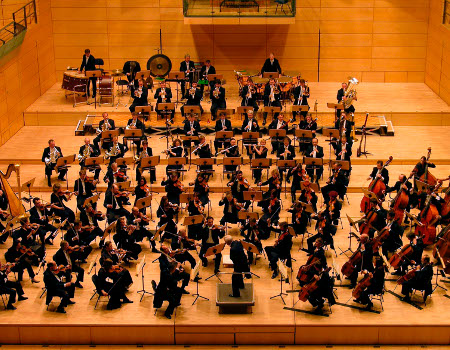
Chris: The Alan Wake score is noted for combining licensed music with orchestral recordings. What do you think this hybridised approach offers to the overall experience? Were you involved at all in the licensed side of the music and did any of the licensed music influence your own approach to the score?
Petri Alanko: Unfortunately I wasn’t involved with the licensing side and didn’t really know about the tracks until the very end, except for David Bowie and Roy Orbison. I was thinking “this is probably the closest I’ll ever be to Bowie”. In my opinion, the licenced tracks bring the real world much closer. It really feels like watching a TV series. It sort of tells people “they have put some time, effort and money into developing this”, a bit like Miami Vice and its licensed tracks, although in Bright Falls there’s not that much bright sunshine. Or fake breasts, for that matter.
I didn’t really care about the licensed tracks and had to only once transpose a cue, because of the seams between my music and someone else’s. It involved transposing the orchestra recordings by three semitones, but I’m sure nobody ever points that cue out.
Chris: Alan Wake had an unusually long development time of around five years. Were you involved in the project from its conception and were there any significant changes of direction for the game’s music during your involvement? What effect do you think the long development time had on the music overall?
Petri Alanko: I guess the seeds were planted well before I got involved. They set me some stylistic borders, though: I couldn’t use brass instruments, I had to avoid too overly Hollywoodian clichés, and, for instance, try to avoid choirs until the very last minutes. To be honest, I wasn’t too keen on either myself, brass and choir. They’re quite okay in Angels And Demons — or Return of the King — but I felt they didn’t belong to Alan Wake‘s environment. In the beginning they wanted to have John Ottman-ish stuff along the lines of The Usual Suspects, but that rather introvert and sometimes even impressionistic scale expanded somewhat quite quickly, resulting to what it is now.
There are only good sides in longer development time: I had enough time to “taste” the melodies and get to knowing the characters thoroughly. I think the score would’ve been slightly less melancholy and romantic if we’d have less time. Also, some of the themes could have been more decorated, since we stripped quite a few cues to their bare bones just because we had so much time. “I think we can let the viola go”, “the timpani has to be muted, I’m sure”.
In the action scenes in was the contrary. I like to use synths to augment the lower end, so I really could put in another extra layer of analogue stuff, just because the game scene wasn’t ready yet.
Chris: You wrote approximately four hours of music for Alan Wake, which is certainly quite exceptional for a game soundtrack. Why was so much music necessary for the game?
Petri Alanko: Well, I think the amount of music is due to the fact they didn’t want to recycle the action music used in the in-game sections. Even though there are elements shared, there are no two similar in-game action music cues. I was carefully trying to build a database of building blocks, each divided into components, each component fitting to any other in that same tempo and intensity level — we’d have almost an infinite amount of action cue combinations from those components, if I’d managed to keep it that way.

Unfortunately the pacing of the final levels was getting more and more faster, more stressed, so we had to break the rules and start doing >160 bpm cues. I hate short loops, so I created a myriad of 3-5 minute loops, all divided into components (ambient, percussion, orchestra, whatever we needed) — some of it works only in-game, some of it were real cues cut and sliced into pieces. For instance, “Water Pressure” works by itself pretty well.
Chris: Your music has been featured on two soundtrack releases — a collector’s edition bonus disc and an impending full commercial release. Could you elaborate on how you selected the cues for these releases? Were you satisfied with the results?
Petri Alanko: I think the selection of the cues on the main soundtrack is a fine example of “the best ofAlan Wake“, honestly. I think the selection and the order of the cues is perfect. It has a sense of drama, so to say, and it delivers the right emotions at the right time. As for omissions, there are just too many tracks that couldn’t survive without picture; we all know the burden of some movie soundtrack albums — just battle drums and jarring string staccatos. I’m relieved, actually!
What really works in context and in musically is “Well-lit Room” where Barry says his goodbyes to an old friend. His theme was a happy accident and seeing the final result broke my heart. Barry needs a hug! I’d choose that one if I had to. It is very innocent, pure and unstained. Its close sibling is “Departure” in which Alice resurfaces and finds out she’s all alone, surrounded by cold waters.
I think the Limited Collector’s Edition bonus disc had only the essential tracks, but I the softest spots are reserved to the other titles. I like “Taken by the Night”, although bowed cymbals aren’t my game. But there’s that immediate sense of something really, really bad, something suspended or frozen in something horrible — just when you think it’s over, yet another nightmare follows, and it’s much worse than the previous one. Nevertheless, what I had hoped was that they should’ve included more material on this bonus disc, both licensed tracks and my score. It’s a good thing to include some of the lesser known groups, but I think people really want a total experience. A good meal has always starters, main course and desserts. And some wine.
Some of the fine moments of the original cues were left in the to-do folder and we never even demoed them, mainly because we forgot them. I, for instance didn’t remember one theme at all until I heard it in the background of a presentation in the launch party, as an early demo-demo version. It was probably the only “damn!” moment I’ve had during the making of Alan Wake. Well, maybe later we’ll hone that into a finalized piece, but it needs a very spacey aerial view.
Chris: Now that you have completed Alan Wake, listeners are curious to learn what lies ahead for you. Do you intend to work on further game soundtracks in the future or do you wish to return to your routes working in pop and rock music?
Petri Alanko: Never say never, but I’d like to steer clear from pop production. There are just too many issues involved, which I’d like to avoid. I have quite a strong stress resistance, so I can manage the tight schedules pretty easily, but it’s the categorization I’m not a friend of (“this cannot be rock ‘cos it’s got THAT snare sound”).
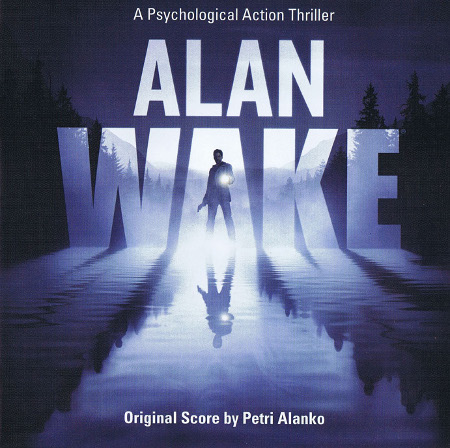
That and the fact that one promo/marketing dude can destroy a work of two dozen people by just “not digging the stuff” and pushing his funny bearded friend’s band instead of the product he was supposed to present. These are two main reasons to avoid being in a producer’s chair. Instead, I’m happy to write songs, to compose and write lyrics. I’m having a summer holiday soon and right afterwards I was planning to participate a few songwriting camps again. I’ve learned to like that stuff, but I’ve yet to find my “own” people or a group to which I belong. Searching continues.
I’m currently working on a custom-built commercial sound library, in addition to Alan Wake‘s DLC 1 & 2 add-ons. I’d definitely like to work in gaming business as I feel I have quite a lot to give dramatically and melodically — hopefully I’m not the only one thinking that way. I haven’t done my best job yet (giving your 100% is a different thing from developing yourself, but they’re related) and neither am I willing to retire, if I ever retire, at all. This isn’t a day job, this is a way of life.
I know there’s a lot of competition and most of it is rather uneven (and unfair at times, according to some fellow colleagues). Some of the hotshot people have myriads of assistants, management agencies and agents, and I’m all alone. But, I like to believe that if one’s good enough, the right job will land at the right time. It happened once, why shouldn’t it happen again?
Chris: Many thanks for your time today, Petri Alanko. Is there anything you’d like to say to fans of Alan Wake‘s score around the world and is there any last words you’d like to readers. Best wishes for the future.
Petri Alanko: Thanks a million for letting me share my thoughts! My not-so-wise last words here are probably these: Feed your local game composer, buy the soundtrack, and spam the forums with good reviews! If you feel I deserve it, just go ahead. If I don’t, well, please keep it to yourself. Thanks!
Many thanks to Greg O’Connor Read for coordinating this interview. To read even more about Petri Alanko’s experiences on Alan Wake, check our extensive insight article. The Alan Wake Original Score will be released by Sumthing Else Music Works on July.
Posted on July 30, 2010 by Chris Greening. Last modified on March 6, 2014.

